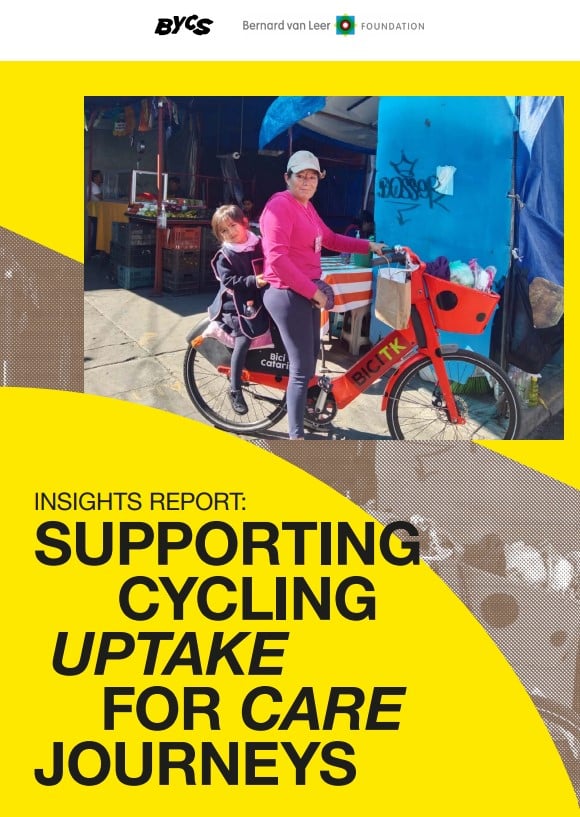Of the 4 billion people living in urban areas today, nearly a third are children. A large portion of the adult population takes on a role as a primary caregiver for a child, at some point in their life. Care activities, such as escorting children to school, to the doctor, to see friends, or purchasing groceries and other items for the home, influence how, and why many adults move through the city. Care-related journeys make up a substantial portion of the total adult urban population, with several studies finding that this number can be as high as one third of all their trips.
This document explains why and how policymakers and practitioners can support cycling uptake for care journeys. It primarily focuses on mothers and other women who care for children, who conduct a significant and often disproportionate amount of caregiving labour, and trips.
These insights are based on three pilot programmes that took place in 2022 in Mexico City, implemented by Bicitekas, Istanbul, implemented by Chain Breaking Women, and Bengaluru, implemented by Purpose-Bengaluru Moving. These pilot programmes were developed in partnership with BYCS, and provided cycling access and education opportunities to 100 women caregivers. This report uses insights from an exploratory survey on cycling & caregiver journeys (BYCS, 2022), which gathered the experiences of 209 caregivers across 16 countries. This report also leverages academic and grey literature, and expert interviews carried out for the report “Cycling for Infants, Toddlers, and Caregivers (BYCS, 2020).
This report is part of the BYCS global initiative “Increasing Access to Cycling Mobilities of Care”, supported by the Bernard van Leer Foundation (2022-2023).
